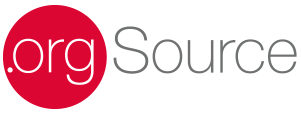International Leadership, Women’s Issues, and Branding—A Conversation With Allison K. Summers, CAE

Each year, 12 million girls are married before they turn 18. In the United States, only approximately four states have a law prohibiting marriage under the age of 18. And, there are two states where a couple, accompanied by parents, can marry as early as 12 years old. I learned these disturbing, but important, statistics from Allison K. Summers, CAE, a guest on the Association 4.0 podcast.
Zonta International, where Allison served as Executive Director* and Chief Staff Executive, was honored with the 2021 ASAE Summit Award for the UNFPA-UNICEFF Global Program to End Child Marriage.
Our discussion about the Summit Award launched a wide-ranging conversation. An expert on branding startups, executive leadership, governance, and more, Allison has deep roots in the association community. In addition to her 9-year-plus tenure at Zonta, Allison is a former president of the American Marketing Association. She’s also the author of two books, “Building Your Brand” and “Connect to Influence.”
“The Summit Award was an incredible boost for our team,” Allison recalled. “We’d been living with COVID for some time. The recognition, the program’s success, and its critical mission are badges of accomplishment for the group.
“Someone under the age of 18 who is in a battered or abusive situation is still a minor in the eyes of the law, even when they are married,” Allison explained. “They can’t hire an attorney, stay at a domestic violence shelter, or get a lease for an apartment. If something goes wrong in that marriage, few options for help are available.
“We’re pleased to report that since the program’s launch in 2016, more than 7.7 million adolescent girls and more than 4.2 million community members have been reached with information, skills, and services. By this year, the program projects reaching more than 14 million adolescent girls across 12 countries in Africa, the Middle East, and South Asia with direct services.
See Through a Wider Lens
Zonta International is uniquely positioned to accomplish this and other female-friendly goals. The organization and its members work at the international, national, and local levels to realize the vision of a world in which women’s rights are recognized as human rights and every woman is able to achieve her full potential.

“Zonta isn’t a trade or professional association,” Allison advised. “As a leading nonprofit, similar to Rotary, Lions, or Kiwanis, it’s a membership organization, but the focus is community service. Zonta offers a variety of scholarships and awards. It also supports members through activities that inspire them to excel in their careers and personal lives.”
Talking with leaders who work on a global playing field is a great opportunity to see our own environment from a different perspective. I was interested to hear Allison’s comments on managing an organization specifically for women across such a broad canvas.
“The international and the gender components have unique characteristics as well as distinct opportunities and challenges,” Allison responded.
“Zonta supports members in 63 countries. Governance, and the vision of governance, is so varied around the world. When each board member is a different nationality, everyone arrives at the table with their own cultural expectations. They have distinct viewpoints about activities like financial management and the execution of programs and services. The diversity of needs and perceptions is both energizing and complex.
“The 98 to 99 percent female demographic makes for a unique environment. Women who join Zonta are doers. They want to accomplish goals. As the executive director, you facilitate an international group that is service-oriented and driven by women.
Work Toward Future Value
There is tremendous uncertainty in the post-pandemic world, especially for women and girls. I asked Allison what she sees as our greatest obstacles.
“My immediate reaction is access to money,” Allison replied. “Women are underrepresented in banking, and access to the banking world. If they are entrepreneurs starting businesses, they’re only getting loans at a 79 percent rate compared to their male counterparts. And, of course, we all know about the pay gap.
“The ability to generate revenue brings freedoms, options, and opportunities. It supports professional development and networking. When you have the resources, you can join organizations like .orgCommunity to meet and learn from other professionals.
“In the US, the cost of childcare creates significant barriers that prevent women from fulfilling their earning and professional potential. A family might be paying $25,000 a year for childcare. When they compare the expense to their professional income, both parents working may not seem productive. But, I counsel colleagues that their income today is not the point. You’re working for your salary and your value 10 years down the road. It might be painful, but you must stay in the workforce and stay engaged.”
Connect to Opportunity
Allison’s recommendations are spot-on. During the pandemic, I talked with many women who opted out of traditional employment. Temporary freelancing was one strategy for staying involved on a limited basis.
“Freelancing is a good alternative,” Allison advised. “But you must be intentional. Consider developing a personal brand. I suggest incorporating your own company. It’s easy with resources like LegalZoom. Then build your identity on LinkedIn. The world doesn’t need to know if you’ve scaled back to 10 to 20 hours a week. Lead with what works for you. When you return to a traditional role or bring in partners for a new business, you’ll be appropriately positioned to meet the future.”

That’s great advice for anyone considering scaling back. Also, I can’t over-emphasize the importance of staying connected. At a recent .orgCommunity event, I was excited to see a colleague who just started a new business. She was preparing to leave before the reception. As a new entrepreneur, I urged her to take advantage of the opportunity to meet people who might become customers. She confessed that she wasn’t comfortable networking. But, I introduced her to a group, and she stayed for the whole hour.”
Confronting a sea of strangers can feel risky. But when you make the effort, there will be some familiar faces at the next event. Networking takes practice. Allison’s first book “Connect to Influence,” offers advice for people whose palms turn cold at the thought of being alone in the crowd.
“I recommend taking a selfish approach to networking,” she advised. “Walk into the event, knowing the three things you want to achieve. Whether you’re looking to hire someone, discover what’s trending, or secure sponsorship, with talking points in your back pocket, you won’t be at a loss for words.”
Asking questions is another great way to make connections. People enjoy talking about themselves and their work. Allison captioned her LinkedIn photo like this, “The start of amazing begins with the right question.” That statement captures her respect for the power of curiosity. I was interested to learn what questions she believes association executives should be considering.
Watch for Disruption
“You need to watch for the next disrupter,” Allison responded. “There are so many challenges. For-profit entities, masked as membership communities, are encroaching on our market. They execute more quickly, and they have a more modern presence. Consider your association’s voice. Examine the audio and digital imagery that you’re presenting to ensure that it is up-to-date.
“Knowing your brand is critical to maintain market share. Consistency can be difficult. Technology puts the brand in too many people’s hands, and there is the danger they will take it in multiple directions.
“Do a brand audit and review everything that you’re currently producing. Make it easy for committees and leaders to access resources like PowerPoint templates. Zonta has a standards guide that includes instructions related to style and formatting. We distribute it widely but uniformity is challenging, especially when you’re in 63 countries.”
For traditional organizations, unable to easily switch to a contemporary look, Allison recommends considering a secondary brand channel. “Zonta started an Instagram channel called “Firsts for Women.” We feature videos about women who are achieving firsts either for their ethnic group or for their country. We’ve created a new initiative that doesn’t lead with our name. If people like it, then we can grow it on the back end.”
Deliver Delight
Allison’s podcast, Disruptive CEO Nation is a place where her curiosity and questions connect listeners to innovative company founders and thought leaders. When I asked her where she likes to begin those conversations she said, “I usually start by asking what delightful things they deliver to the world.”
I think that’s a perfect place to begin any dialogue. As we fulfill our professional responsibilities, it’s important to remember that we can all be creators and bring delight to the employees, colleagues, members, and other leaders whose careers we influence.
*In May 2023, Allison transitioned from Zonta International to serve as the executive director for the Association of Pediatric Hematology / Oncology Nurses under the MCI-USA Association Solutions division.

